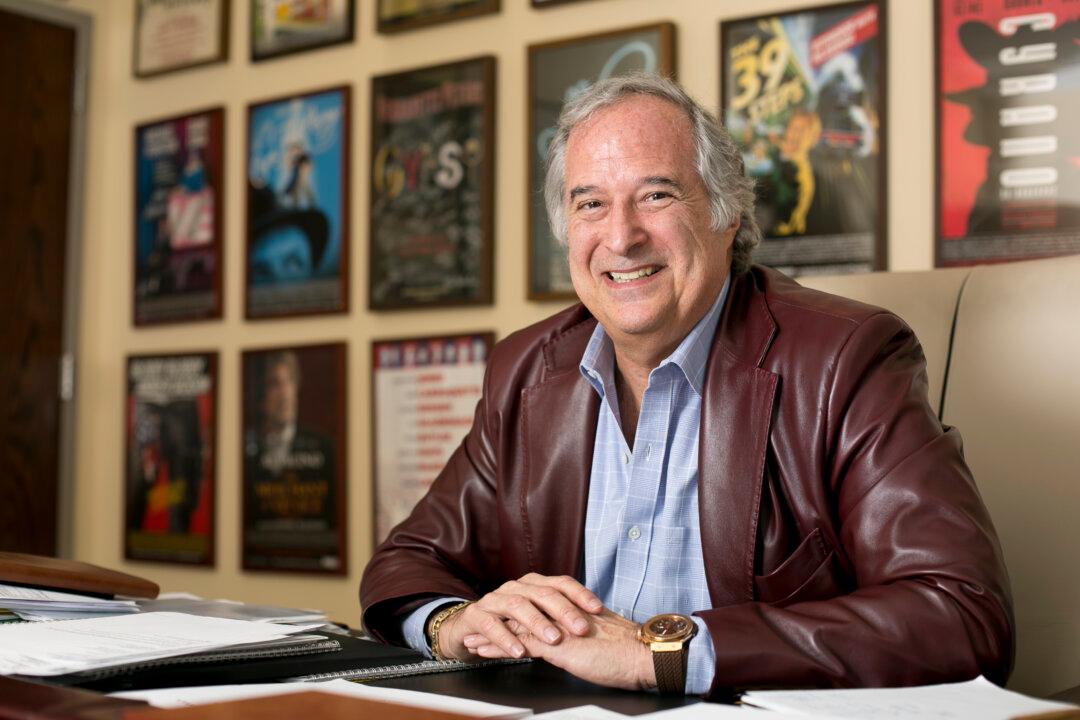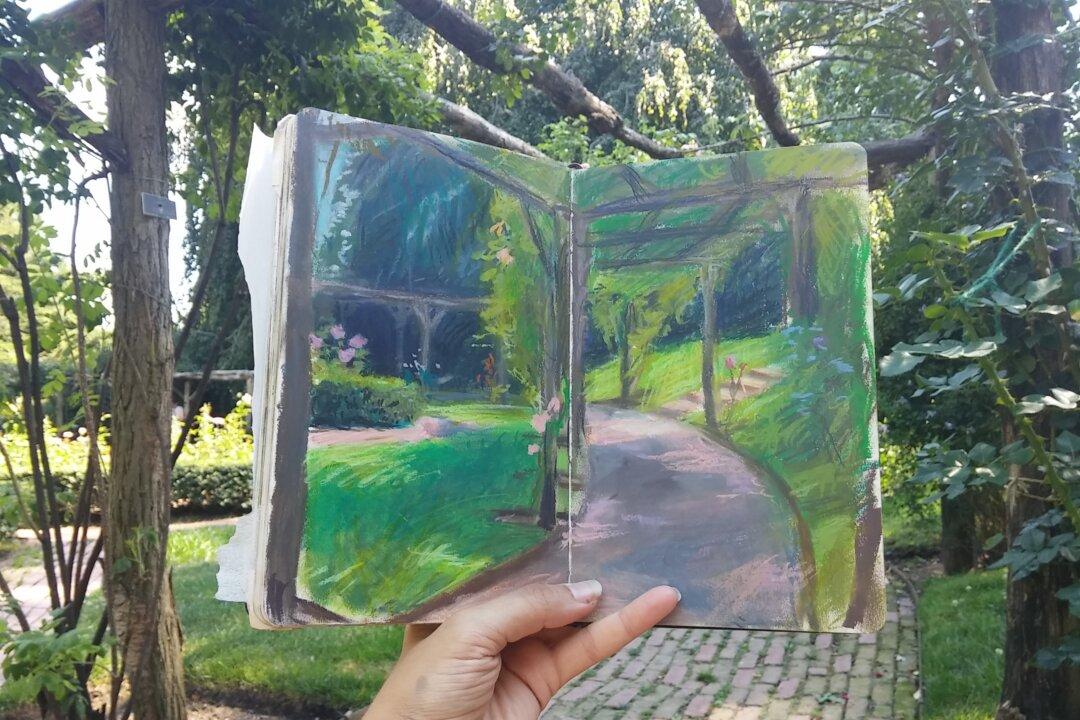NEW YORK—He greeted with a big, welcoming smile. Without missing a beat he said, “Let me show you around.”
On the walls of his office hang a plethora of photos of himself with big-time actors and other VIPs like Lauren Bacall, Alec Baldwin, Kevin Kline, Shirley MacLaine, Al Pacino, Gregory Peck, Catherine Deneuve, Christopher Reeve, Paula Abdul, Paul Simon, Walter Cronkite, Donald Trump; former New York City mayors Rudy Giuliani and Michael Bloomberg; former U.S. presidents Ronald Reagan and George Bush; Charles, Prince of Wales; and so on.

Photos of Broadway producer Stewart F. Lane with actors, celebrities, and various other renown people on the conference room wall of Stewart F. Lane Productions Inc. and Stellar Productions International Inc. in Midtown, New York City on March 10, 2015. (Samira Bouaou/Epoch Times).






